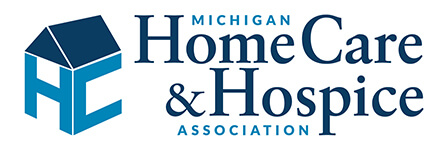Public Policy
Public Policy, as established in state and Federal legislation, governs the financing of our industry and the means by which we are held accountable for the delivery of goods and services. Quite simply, MHHA’s public policy mission is to seek the development of public policy favorable to agencies and businesses engaged in the delivery of home care and the patients they serve.
An Overview
Our public policy platform is based upon the following principles:
- MHHA is committed to the empowerment of home care agencies, hospices and home medical equipment organizations so that they can effectively express their mission of providing care and service to all patients and families who need it.
- MHHA is committed to excellence in clinical practice and business operations in home care agencies, hospices and home medical equipment organizations.
- MHHA supports appropriate rules, regulations and systems of accountability, while opposing impediments to cost effective, high quality care.
- MHHA is committed to assuring that home care agencies, hospices and home medical equipment organizations are fairly compensated, in a timely fashion, for the care they provide. And so, MHHA seeks the appropriation of funding levels sufficient to meet the needs of the home care patient population.
- MHHA is committed to assuring funding coverage for home health services which are deemed beneficial to patient recovery, morbidity and mortality rates and to keep apace with advances in medical science and technology.
Member Protocol
Nowhere is MHHA’s mission statement more important than in the arena of public policy advocacy: MHHA’s mission is to be a unified voice, representing and defining the direction of quality and ethical home care services.
Therefore, member agencies and businesses should be guided in their expressions and activities on policy matters by the following principles/guidelines:
- Members are encouraged to seek and maintain relationships with their respective legislators and to share with them the opportunities and issues which challenge their ability to provide quality and ethical home care.
- Members are unrestrained in the exercise of their right of citizenship, to freely express their personal and independent point of view to legislators and elected officials.
- Members are encouraged to learn MHHA’s formal positions (those adopted by the Board of Directors) on governmental or legislative matters. Such information, as well as guidance on issues for which positions have not yet been developed, may be obtained from the MHHA office.
- Members should always identify their individual viewpoint as personal opinion when communicating with legislators and public officials: in particular, this applies when the member’s view differs from a MHHA position; when the MHHA position cannot be accurately represented; and when the MHHA position may not be known.
- Members are encouraged to bring questions, concerns and recommendations to the attention of the Public Policy Committee. Meetings of the Committee are open to members and are announced in advance with the monthly MHHA Bulletin.
Goals
The public policy goal of the Michigan HomeCare & Hospice Association’s is for our statewide association and its 300 member organizations to be viewed by citizens, legislators and government officials as a knowledgeable, valuable, credible and consumer-focused resource.
Activities
To address its mission for advocacy, MHHA, through its Public Policy Committee, engages in the following activities:
- Develops goals and objectives to advance the association’s agenda in the arena of governmental affairs.
- Maintains representation with public and private sector policy interests in the State Capitol.
- Mounts strategies for statewide impact on the governmental/legislative process.
- Creates opportunities for member and patient self-advocacy and citizenship.
- Maintains a statewide communication system on public policy issues.
- Serves as a clearinghouse of information on public policy issues.
- Monitors implementation of statutory and regulatory responsibilities of governmental and private sector agencies.
- Networks with other statewide consumer, civic, service, fraternal, professional and trade organizations to enlist their support on issues of importance to the delivery of home care services.
